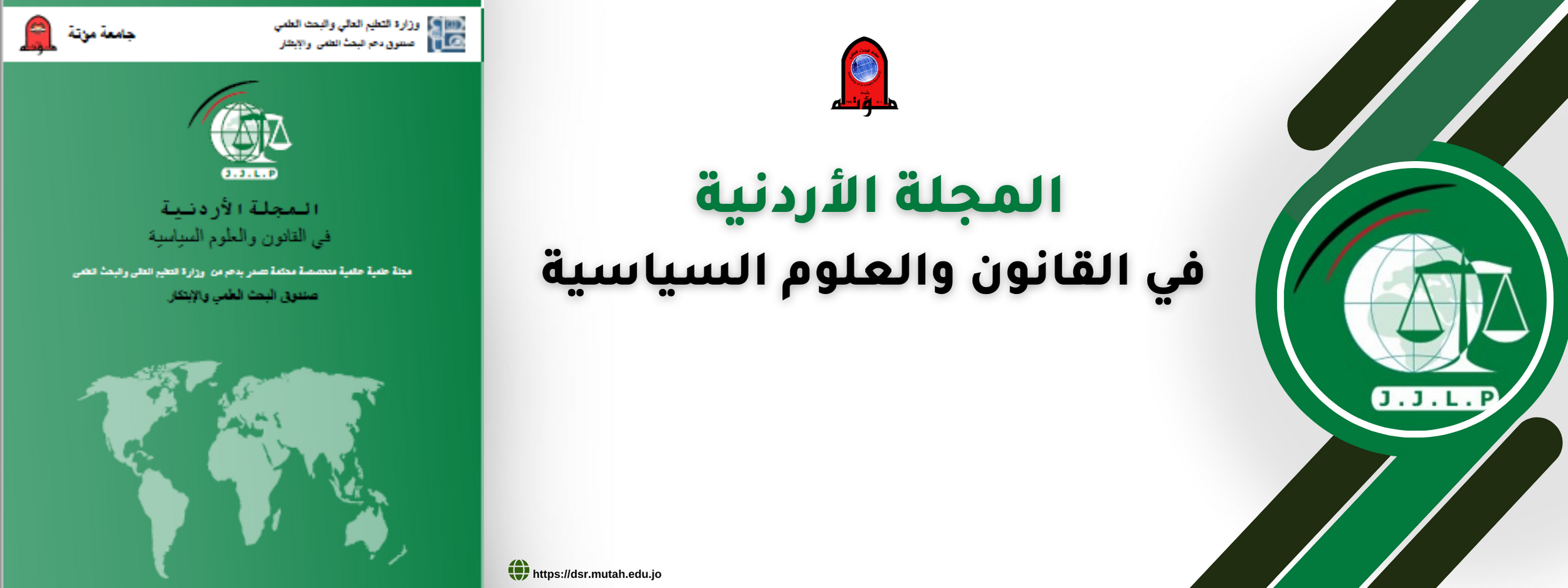دبلوماسية المناخ من منظور واقعي كلاسيكي جديد: نموذج الأردن
DOI:
https://doi.org/10.35682/jjlps.v16i2.702الكلمات المفتاحية:
تغير المناخ، الواقعية الكلاسيكية الجديدة، دبلوماسية المناخ، استراتيجيات التخفيف، الأردنالملخص
تهدف هذه الدراسة إلى نمذجة دبلوماسية المناخ الأردنية في ضوء النظرية الواقعية الكلاسيكية الجديدة حيث تكشف كيفية تشكل العوامل المحلية والنظامية استراتيجيتها متعددة المستويات، بالإضافة إلى اختبار الفرضية القائلة بأن استراتيجية الأردن متعددة المستويات تجمع بين العوامل المحلية والمؤسساتية والوطنية كجزء من دبلوماسيتها المناخية. وتم جمع البيانات من مصادر مختلفة للافتراض بأن الاستجابة المناخية متعددة المستويات للبلدان صغيرة الدخل تتداخل بطريقة وطنية ودولية. وتوصلت الدراسة إلى أن أممية الأردن هي استراتيجية منهجية طويلة الأمد يمكن أن تُلعب على مختلف المراحل، وقد التحمت جميع المستويات مع بعضها بما يشبه شبكة العنكبوت. ويمكن ملاحظة النزعة الدولية في مشاركة الأردن الفاعلة في الأنشطة المتعلقة بالتخفيف من آثار تغير المناخ من خلال اتفاقية باريس ومن خلال صندوق المناخ الأخضر. وقد أثبتت النظرية الواقعية الكلاسيكية الجديدة أنها طريقة سليمة لتحليل الحالة الأردنية. توفر المحددات والحلول الفريدة لهذه الحالة طرقًا جديدة للتفكير في التعامل مع تغير المناخ. وفي الوقت نفسه، تسلط النتيجة المركزية الضوء على أهمية البحث المستقبلي حول دور السياسة الداخلية والظروف البيئية الخارجية في تشكيل السلوك وفي عملية المفاوضات الدولية بشكل عام. تساهم الدراسة في أهمية النظرية الواقعية الكلاسيكية الجديدة في دبلوماسية المناخ، وتوسع فائدتها، من التفسيرات القائمة على المصالح للسياسات الخارجية للدول في النظام الدولي إلى نطاق أوسع من الواقعية.







